Rabindra Nagar Natyaayudh turned into a 12 years Theatre Organization and to this age it has gone through the vicissitudes and upheaval of practical and competitive Theatrical Area. Every year we make four new dramas besides our other theatre activities. Twenty eight active members are engaged themselves wholeheartedly with all the field of works. ‘Behular Basor’, script written by Dr. Dhruba Das and Directed by Dr. Dani Karmakar . It is based on West Bengal Women Folk Theatre “Jat”. We have done ‘Lakhindarer Janmokatha’ in same genre. Our group ‘Gange Bhasalo Tari’ , ‘Janoiker Mrityu’ , ‘Chakravyuha’ , ‘Somyer Britye’ , ‘Rasta’ ‘Binodini’, ‘Bish Tarpane Visarjan'(based on Tagore’s play Visarjan), ‘Chhau Macbeth’, ‘Jibjantu’, ‘Kabira’, ‘Sonmani’ etc . We also produced drama in different medium of theatre like Street Theatre and Intimate Theatre. In Street Theatre medium, we have produced ‘Hing Ting Chhat’ the story based on Rabindranath Tagore’s poem, ‘Bagharu’ the story based on folk tale and ‘Bhiswalochaner Bichar’ adopted from Bertolt Brescht’s drama and. In Intimate Theatre medium we have produced ‘Ami’, ‘Kanyadan’ and ‘Blank’.
Rabindra Nagar Natyaaudh always believes that theatre is a medium of protest, not only an entertainment media. We always try to invent a new language and new era of theatre. Try to engross with folk theatre like “Lakhindarer Janmokatha” (birth story of lakhindar, Manasamangal Pala), or “Abhimunya”, the epic character of Mahabharata. The all theatre of our group wants to focus on many socio-political problems. We produced “Pank” (Slime) based on the murder of Abhijit Roy, Washiqur Rahman Babu, Ananta Bijoy Dash bloggers and literates of Bangladesh. Here we will protest against religious fundamentalism. Here we want to show that fundamentalism basically spoil society day by day. We think theatre can change the scenario of human heart. It is the best weapon to raise our voice against any religious fundamentalism. The 100th performance of ‘Pank’ drama has been completed.
Chhau Macbeth
William Shakespeare’s Macbeth Based on Chhau Dance
Editing, Direction & Scenography by Dani Karmakar
Macbeth is the shortest tragedy, and tells the story of a brave. Life in the seventeenth century influenced Macbeth play as well as the audience response, due to societal myths. But still the story and plot of the play is quite relevant to the present social perspective. Still the values and attitudes are naturalized through the contemporary view of society: a hierarchal structure that demands order and loyalty.The play is about Lady Macbeth. She suppresses her instincts towards compassion, motherhood, and fragility to achieve her ambition, ruthlessness and power of kingdom. This conflict is the prime subject of the drama, and sheds light on gender-based preconceptions from Shakespeare times to the present day.
Binodini
Based on Bengali Theatre Actress Nati Binodini
Script & Direction by Dani Karmakar
Binodini Dasi curved an immortal place in the history of Bengali Theatre. Even today there are actresses whose first love is theatre. An actress who is in search of ‘Binodini’ tries to relate her works and sacrifice in her personal life. A school going girl had a desire of acting in theatre. She was immediately forced to marry just for the sake of so called prestige of parental family. Post marriage she had thought that in-laws house is her own house but realized late that she got married for the desire of her parents, became mother just for the sex requirements of her husband. In reality show of life when all the doors had started closing she found a window open I.e.; her first love, theatre. But she was not spared by her son and husband they set fire to her body. ‘Binodini’ are immortal. They take rebirth to sacrifice for theatre. Show must go on.
Jibjantu
Script: Sri Bratya Basu
Direction: Dani Karmakar
Script writing and direction: Dani Karmakar
The most advanced species in this changing world are human beings. Under the external mask of humanfeatures of eyes, nose and mouth lies another creature. Their eyes do not seem to be positionedcorrectly. They are not placed where they should have been. They are not how they should have been. It is their numbers which is increasing every day. They are cool headed individuals like pythons who are poisonous and devoid of emotions. They are like dogs who can swag their tails and lick other’s feet for their selfish needs. There are also persons resembling a fox who sniff to gauge the situation and try to keep themselves safe. Even the mongoose sniffs with its moustache. These kinds of human beings appear in the play, ‘Jibjantu’ written by Bratya Basu. They look like human beings but they are not. It is as if their eyes, nose, face are not at the right place. As if they not human beings, they are animals. They are not human beings, as if they are animals.
Bish Tarpane Visarjan
Drama:Rabindranath Tagore
Edited and direction: Dani Karmakar
Bish Tarpane Visarjan composed by Rabindranath Tagore, is a timeless creation that enunciates an eternal truth: Pitting love against the narrow domestic walls of superstitious adherence to rituals is the only answer to religious fundamentalism. The bard maintains that this is the only path to lasting peace for the larger humanity that is today poised on the crossroads of faith and destruction. Tagore realized that those blinded by the ritualistic practice of any faith lose their sense of belonging to the brotherhood of mankind and degenerate into a blood-thirsty lot. Time and again this land has witnessed the extent of madness this can spell, and examples of this have still not ceased to occur. Down the ages, for reasons valid or flimsy, a section of our own people have unleashed violence on innocent lives. The mindless pursuit of tenets from the past and the drive to impose its rule is costing the lives of youth and thinkers and speakers. Bish Tarpane Visarjan outlines a blueprint for humanity that should be the philosophic bedrock of Belief in our times. Else, the flagbearers of religion such as Raghupati will spell the dawn of a dark civilization only to entrench their own hold on power. Indeed, the breed has already spread its tentacles in society, nations, worldwide. Tagore had the foresight to identify these aggressors a full century ago. “In the name of God man ceases to be human,” he wrote. He was fully cognizant of the fact that Religion is never merely a set of unrelenting rules nor the stifling demands of prescribed rituals. The test of true religion lies in the welfare of mankind. Bish Tarpane Visarjan thus is a cry against cruelty and destruction wrought in the guise of prayer. Raghupati’s rigid practice of tradition wishes to perpetuate ‘sacrifice’ in the temple of goddess Tripureswari. And to do so he will not hesitate to incite the mobs, drive a wedge between the king and his queen, or even have him assassinated! Beware the blind follower of false gods.
Sita (Strilinga Nirman)
Script and direction: Dr. Dani Karmakar
The Workshop enacted in the form of Caribbean performance techniques and Indian Classical Dances. In this workshop, participants were aware of their individual strengths and weaknesses and motivated them a positive thinking. In this workshop we were seeking to address gender discrimination, girl trafficking and violence towards women and amongst families those are the identified social problems in our society. On that process we made a production, named “Sita” (Strilinga Nirman). The drama was a huge stir in the audience. This ‘Sita’ is new perspectives on the Ramayana that will be portrayed confront issues affecting Indian women. The context is as old as Ramayana, as new as ‘Nirbhaya’. Acid attacks, honor killings, stabbing, chastity test, suspicion are becoming everyday reality for the women of today. So, violence is common in mythology and the present social situation. This production was presented in the context of persistent rape, violence, sex and social justice. This production was largely not based on dialogue, but it was also mixed with Eastern and Western physical movements in style. The play, we performed various prestigious National Theatre Festivals. We performed the play in Icchamati NatyaUtsav 2018, Para-parshi Theatre Festival 2018 etc.
Letter to My Parents
Script and direction: Dr. Dani Karmakar
Depression is a serious mental disorder. This lethal disease devours people. Like the silent killer, all the joy, happiness, and all the good things of the people consume it gradually. Youth’s opts for self-assertion of this depression. The question arises that many people, why young students take such a difficult path like suicide? What are their problems? In “Letter to My Parents”, Bubun was studying. Parent’s dream was to get a good job. Get self-acceptance. It is expensive to study now. He understood that he is not able to do it. It is very difficult to find his education. Very breathtaking, spontaneous and addictive nature, Bubun once started using drugs. There was no contact with relatives. He was withdrawn himself from everything. Day by day anxiety, depression and suicidal tendencies continue to increase. For all these reasons, depression was born at one stage in Bubun. But he was not treated properly. No one can understand the depression. As a result, he chooses death to get rid of everything. Before leaving, he left a suicidal note in the house. Since that day, he was missing. After several days his body was recovered.
To educate the students about the symptoms of mental disorder from the school, a potentially valuable life can be preserved. Along with the education, there is a great need for acceptance about this disease. Accept the problem. We still see this problem in another way. It is a disease like any other disease. Accept this fact.
Mahamaya
Script and direction: Dr. Dani Karmakar
“Mahamaya”, the drama is about the life of the workers of tea gardens in the northeastern hillside area. They have lived so helplessly. Due to political instability and militant activities, the economy has been severely damaged in that area. One-class criminals became active. People of minority Muslim, Dalit and tribal communities in many areas were victims of terrorism. Every day we get news of the killing and collision. The conflict is mainly in the political groups. For many decades, whenever there is news of any political conflict, many political people are killed in it. Political unrest, conflicts and ongoing violence are deeply concerned with the general public. Common people want to live in peace and stay alive and survive. It is believed that the worker (Kanua) was brutally murdered to take revenge. The tea worker was abducted after crushed by the ax, his head cut off and then buried brutally. The workers of the village complain that someone came and took Kanua in the dark of the night. In the morning, local residents found the blood behind the temple and reported to the police. Meanwhile, Government was constituted a special investigation team to investigate the incident. Kanua was a labor leader here. He was killed for political reasons. In addition to that he was a Dalit. Some high-caste people wanted to remove him. Apart from condolence, the leaders assured that they will take necessary steps to uncover the death of the mysteries. The reason for the death of workers is still wrapped in mysteries. Political murder is not a new thing. But in the twenty-first Century one person is still killed by other. No one was arrested yet in the incident. Due to political unrest, there was serious harm to the development. Abductions and murders were increasing in political unrest.
ANTARAN
Script and direction: Dr. Dani Karmakar
This play has been made keeping in mind the philosophy of Gandhi that he said humanity above religion and color. On the one side the pain of Partition, and other side, religious fanaticism and Hindu Muslim riot. Mahatma Gandhi did not want to divide the country. In the play, the poisonous part of the partition, the widespread wounds of the people, the riots, the toxic animosity of communalism has been portrayed. Some political people wanted to divide the country. This drama is about the story of seeing the country again in the eyes of this generation, growing up in the context of partition, hometown, loss of loved ones. The words of that burning chapter come up. The Partition is not just the boundary, but the disorganized division of the mind of the fragmented people. This drama emphasizes the experience of refugees. The story of this play, after the independence of India, the story of migrants. Relations between the Hindu and Muslim families who became refugees after Partition. Still, religious emotions work in us. It is not harmful in all cases. But when blind beliefs and fanatic religious sentiments consume us, then people are divided. Then it takes riot. Gandhiji wanted a single country. That is not just the Hindus, not just the Muslims. This is Independent country of all religions and all castes. Here are Hindu Muslims two families, grew their relationship in this country. But minor religious rituals disagree among both. Here the Hindu family helped the Muslim families who are refugees. In Hindu family, housewife has no children. Society and neighbors say bad language to her and her family. The Muslim family’s wife died after giving birth to a baby. The wife of the Hindu family adopted the child. Here is the mention of humanity above religious fundamentalism. This play raises up a new message above religious fanaticism.
Swarger Kelenkari
Script and direction: Dr. Dani Karmakar
Swarge Kelenkari (Scandal in Heaven) is a cap-a-pie comedy play. A malicious situation around the world. Some are scammed. The scandal and corruption of the people has become an issue everywhere. The plight of men towards women is increasing day by day. Women, on the other hand, are attracted to many husbands. This is one of the great scams in the world. The depravity of the human character is pushing deeper into sin. The parameters of sin on earth are increasing. This scandal and depravity of man has been transmitted to the gods of heaven. They too have been involved in various scams. Doubts and emotional strife have started among themselves.
KABIRA
Direction: Dr. Dani Karmakar
The play ‘Kabira’ is based on the famous play ‘Kabira Khada Bazaar Mein’ which was written by Hindi writer Bhishma Sahni in the 1980’s. In the 1980s, the politics of communal movement had become dangerous. The play describes the outstanding Indian saint poet Kabir’s life and his thoughts that express revulsion against untouchability and religious exclusivism. Kabir’s verses are still relevant which reject autocracy of fundamentalism. The play traces some events in his life and restrictive social conditions in the meantime. This drama is about an era when religious organizations divided society into the interests of their own and the basis of religion. We can see today’s time to talk about Kabir’s era. It highlights the issue of increasing racism, corruption, discrimination, untouchability and communalism. Kabir was repeatedly beaten by religious groups in his life. They tried to kill him. They were put him in front of a mad elephant. They tried to drown him in the Ganges. But he did not move away from his thoughts. He stayed in his opinion. He said of the humanity that God is the one, God lives in all, who has motivated us even today. We are trying to highlight the life of Kabir on the basis of today’s time. We trying to highlight today’s situation of Dalits, the horrific image of religious unrest, the ferocity of fundamentalism through this play. Kabir has been struggling against religious fanaticism throughout his life, against ruthlessness of racism, against fundamentalism. The play connects the struggle of Kabir in a medieval environment with all distortions in the contemporary society.
Sonmani
Script and direction: Dr. Dani Karmakar
The story of the play ‘Sonmani’ is based on a village of West India under British rule, where Subedar used to collect taxes from the villagers. There was a kind of turmoil in the village. In addition to the taxes, the villagers tried to keep the oppressor happy and forced to provide food to Subedar. Due to lack of work in the village, most of the men in the village were leaving for work to the city. The village chief, including Subedar, wished women of the village. The women of the village admitted of greed. Subedar and Mukhiya were destroying peace of the village. There was a factory in the village, where Sonmani and many other women worked. The old factory keeper was responsible for the maintenance of the factory. He taught women to stick fight to self-defense. So that women can protect themselves.
One day Subedar expressed his desire to Sonmani. She slapped him and run away and hided inside the factory. But other women refused to shelter Sonmani. But the chowkidar said, ‘if a woman does not shelter another woman, who will protect the women?’ Subedar’s army attacked the factory. Chowkidar fought. But the factory gates were broken and Subedar killed Chowkidar. The Sonmani then thrashed chili powder into Subedar’s face for self-defense and killed him. This drama speaks of a woman’s self-esteem. Asks herself to come forward for her own protection.
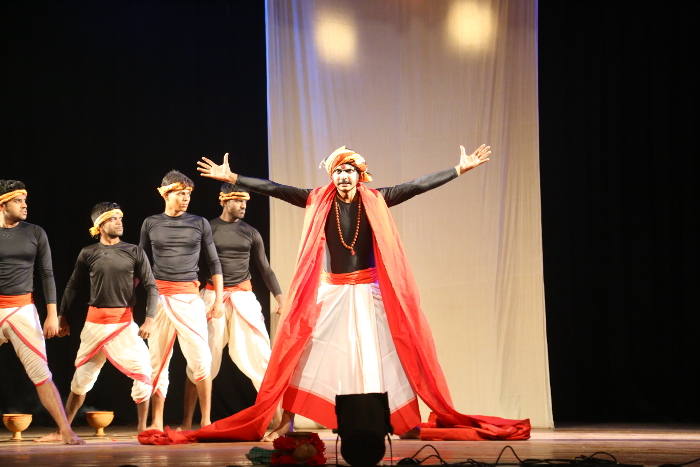 |
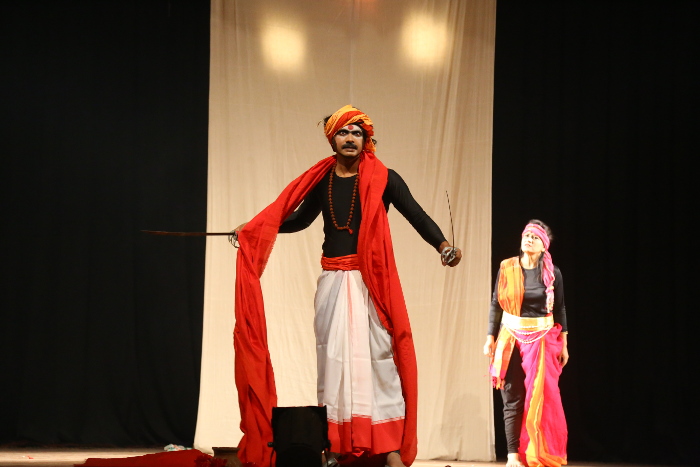 |
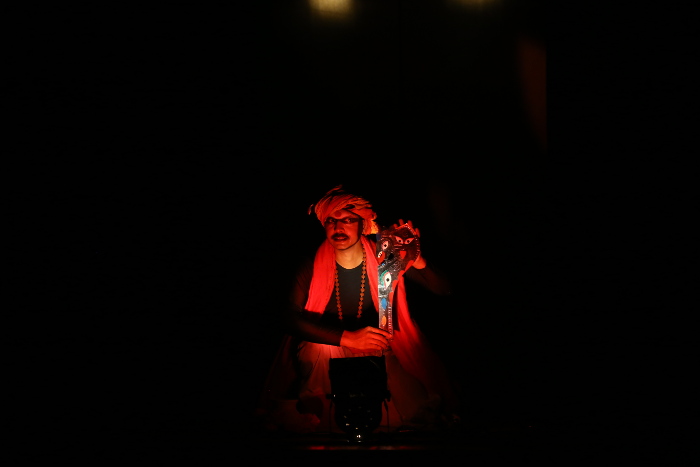 |
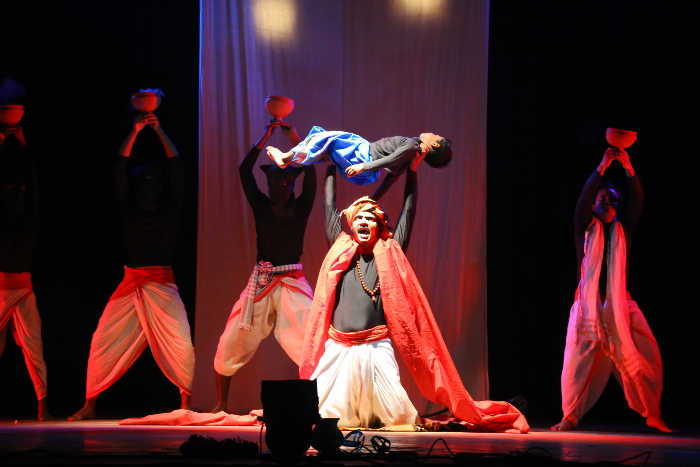 |
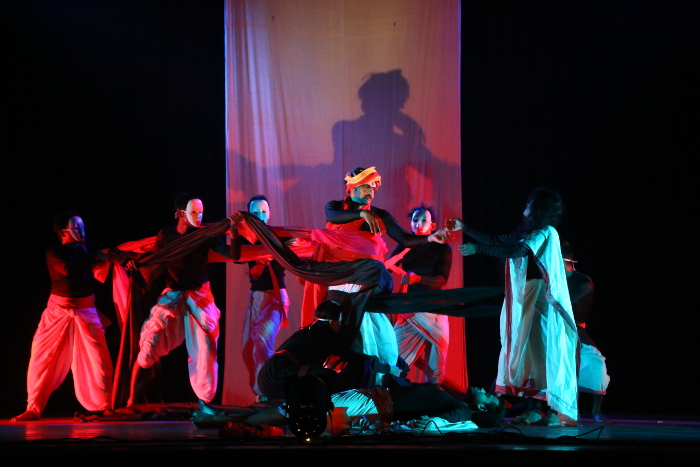 |
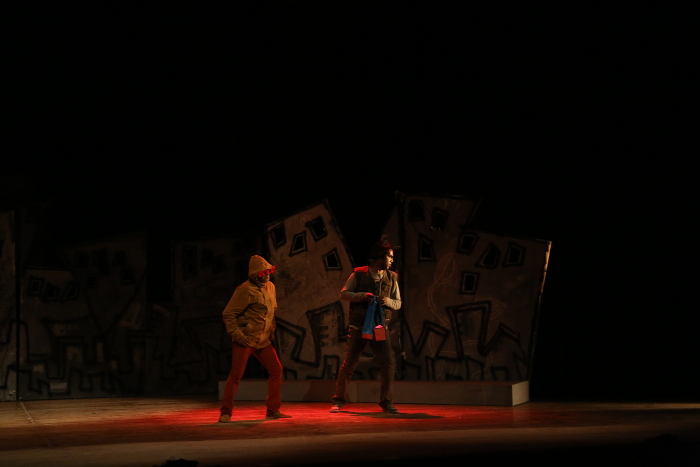 |
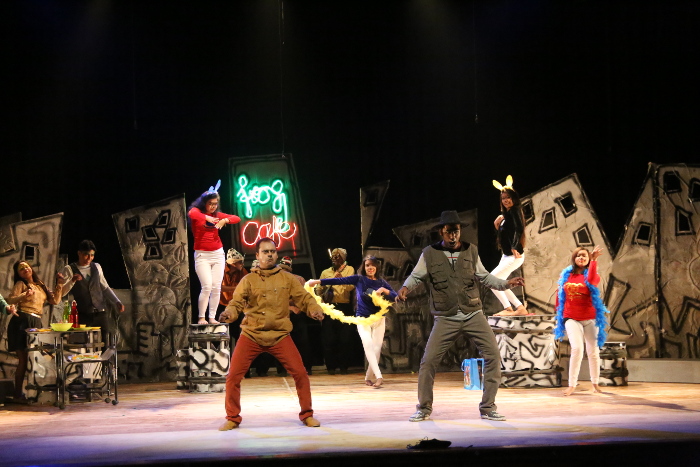 |
 |
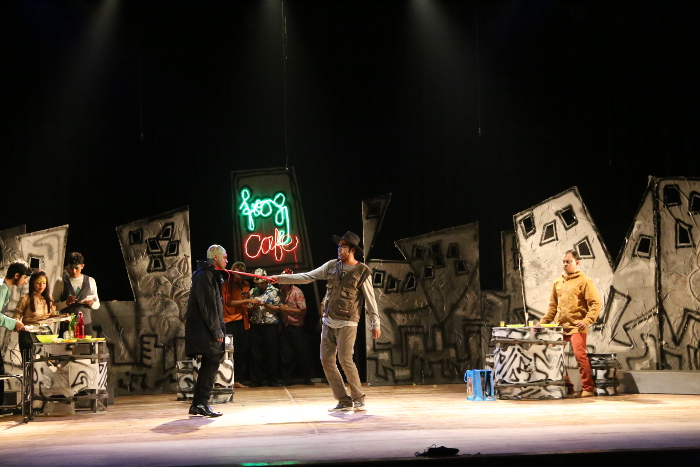 |
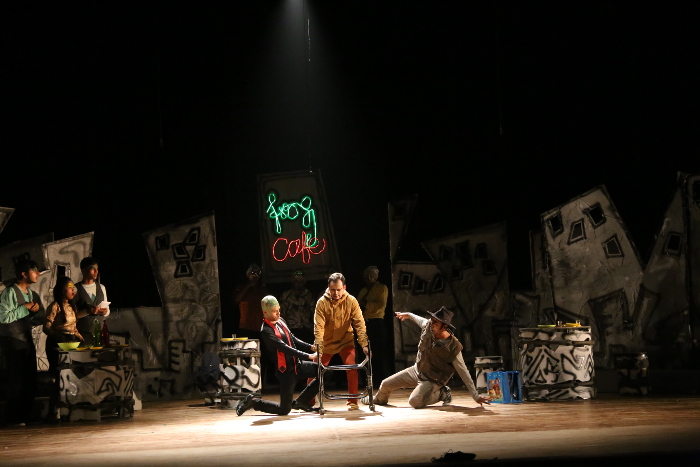 |
 |
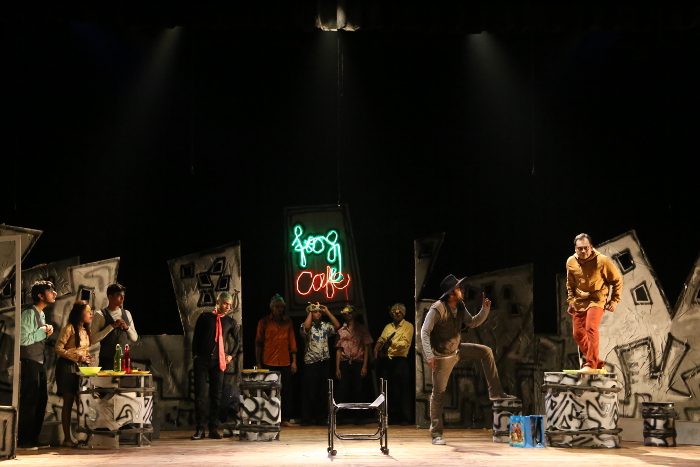 |
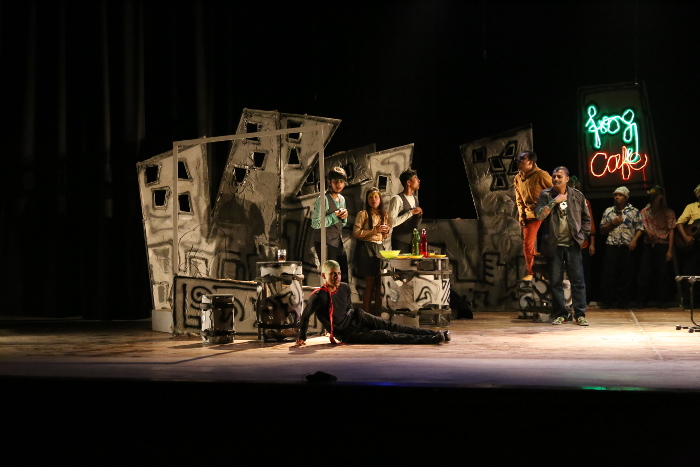 |
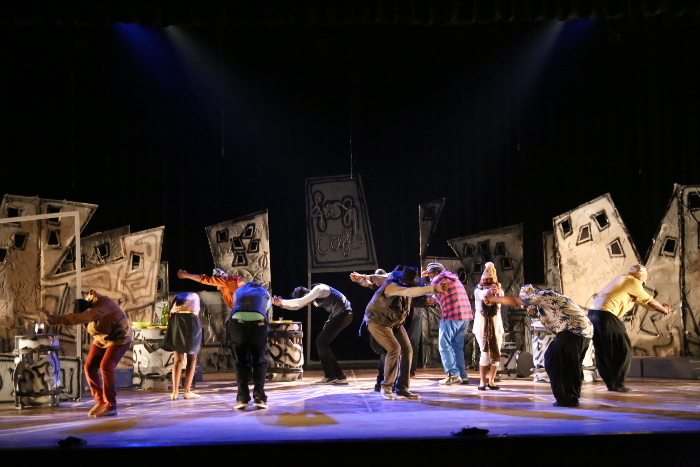 |
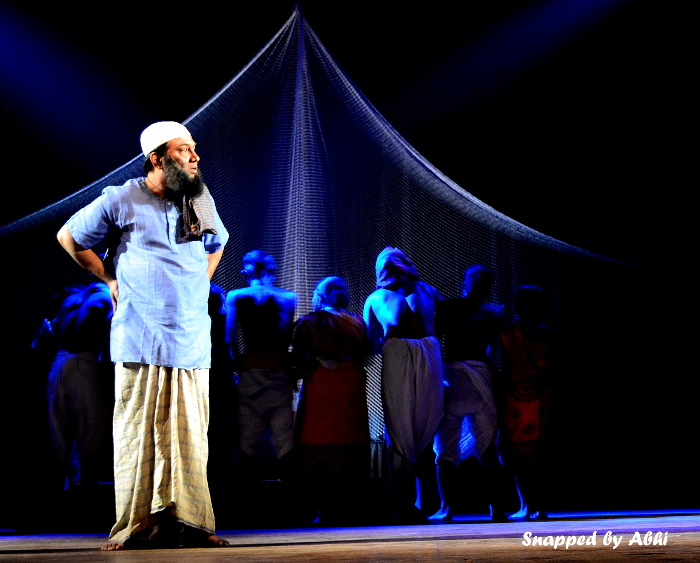 |
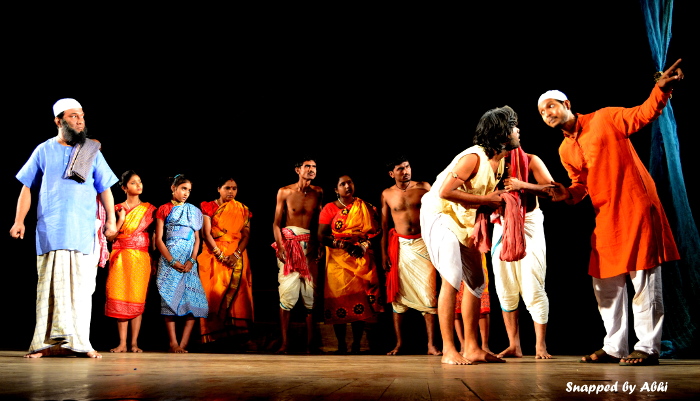 |
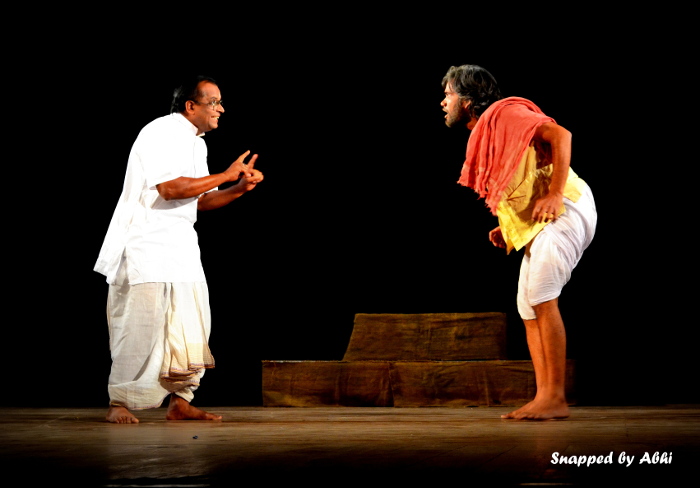 |
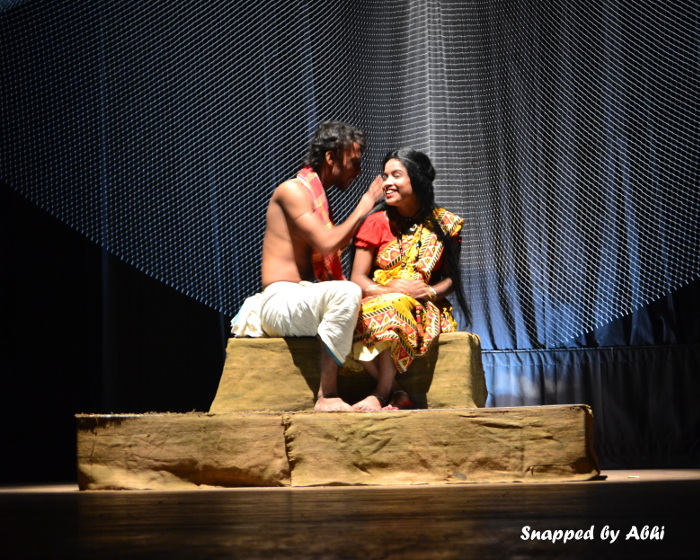 |
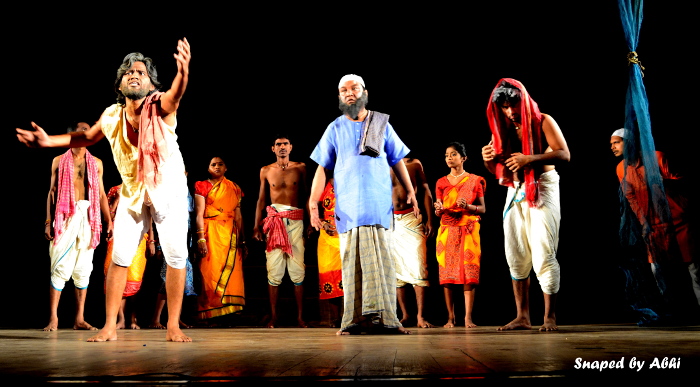 |
 |
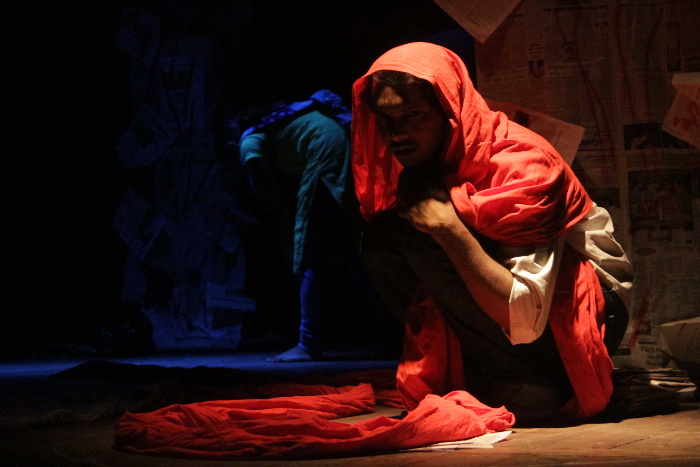 |
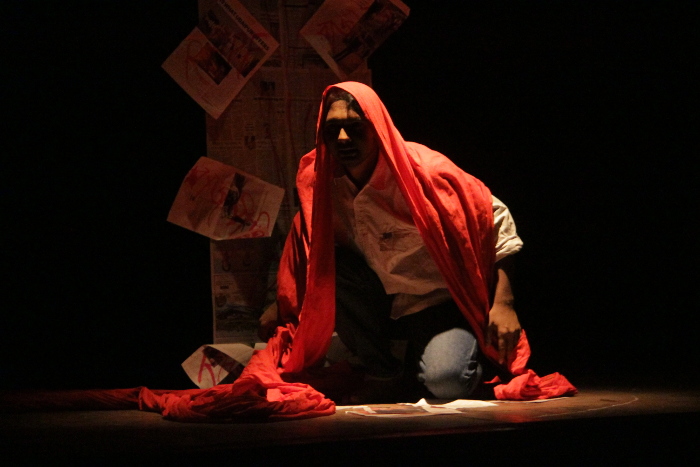 |
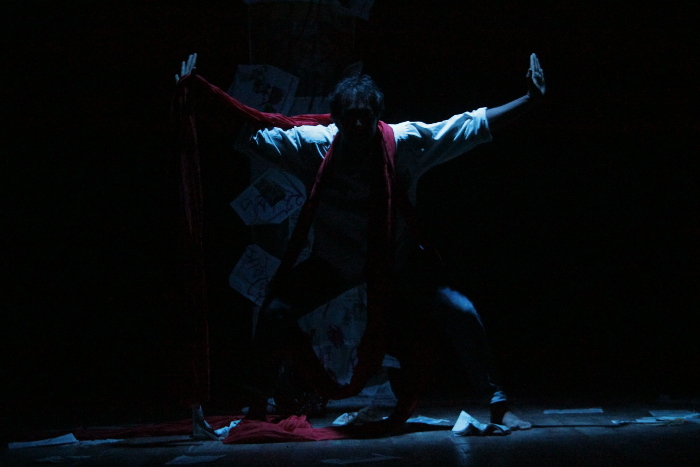 |
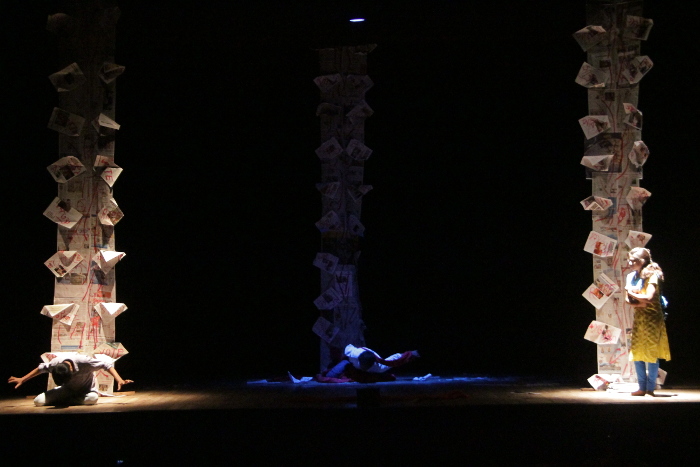 |
 |
 |
 |
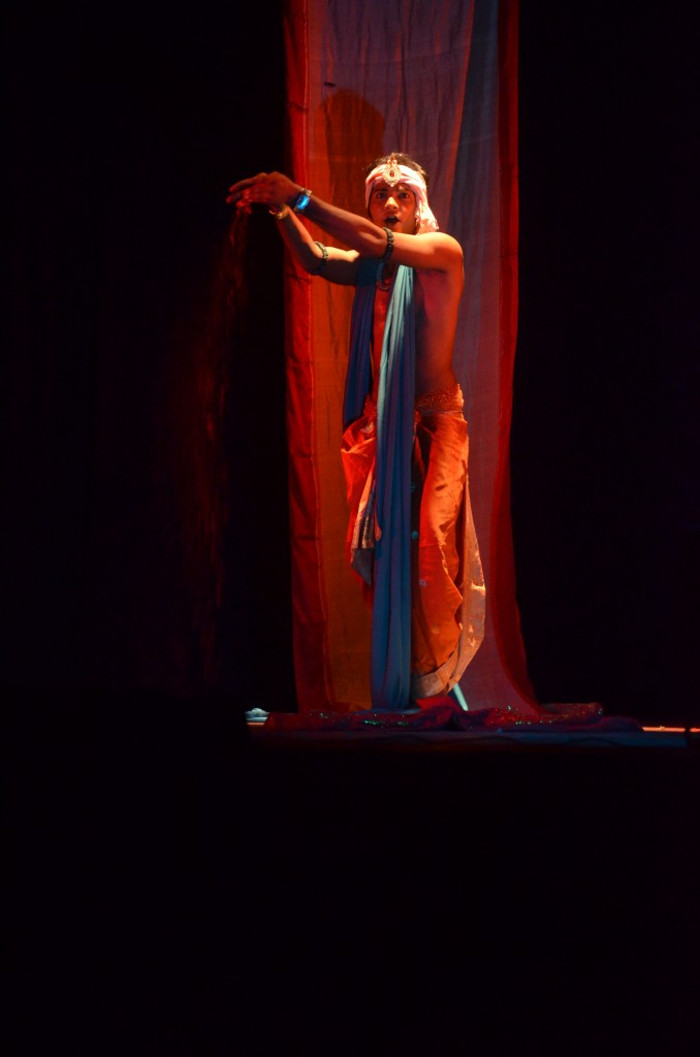 |